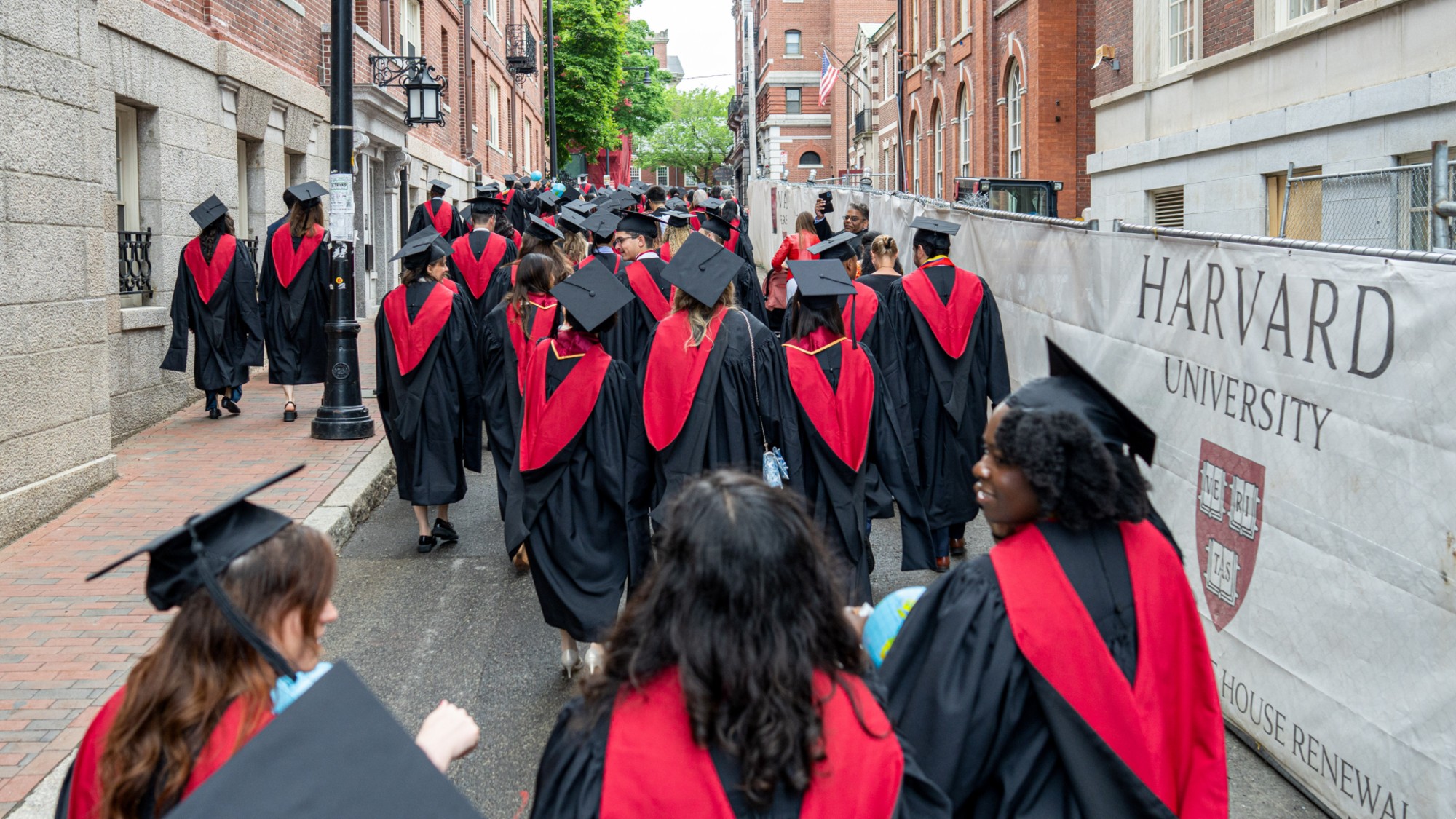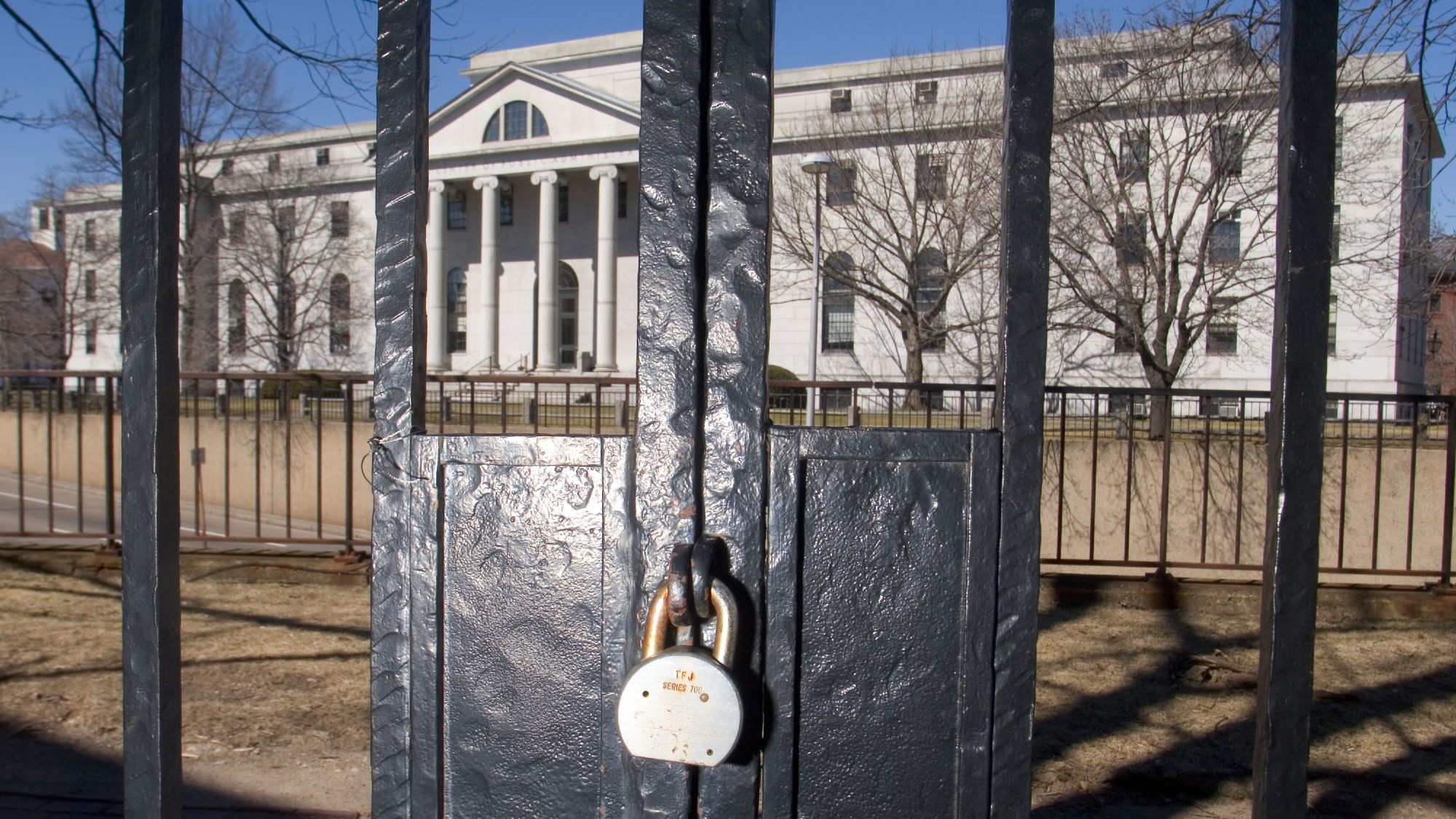Will UK universities survive the lockdown?
Government split over bailing out struggling higher education institutions

A free daily email with the biggest news stories of the day – and the best features from TheWeek.com
You are now subscribed
Your newsletter sign-up was successful
Education ministers are clashing with Treasury counterparts over a proposed bailout package for universities, as vice-chancellors warn of bankruptcies at institutions in the Midlands and north of England.
New figures suggest that international student enrolments will drop significantly for the next academic year as a result of the coronavirus outbreak, cutting off a key source of income for UK universities.
What is the debate?
The Week
Escape your echo chamber. Get the facts behind the news, plus analysis from multiple perspectives.

Sign up for The Week's Free Newsletters
From our morning news briefing to a weekly Good News Newsletter, get the best of The Week delivered directly to your inbox.
From our morning news briefing to a weekly Good News Newsletter, get the best of The Week delivered directly to your inbox.
Education Secretary Gavin Williamson is arguing in favour of a stabilisation package that would offset losses experienced by universities as a result of the global pandemic.
But Chancellor Rishi Sunak and his Treasury colleagues are “not receptive” to what they view as “special pleading”, arguing that universities should take other action before getting government assistance, the Financial Times reports.
Wolverhampton, Bolton and Sunderland universities are believed to be among the most financially vulnerable institutions.
An unnamed university leader asked: “These universities are major employers in their regions, and all train nurses and other healthcare professionals – do we really want them to go to the brink of bankruptcy?”
A free daily email with the biggest news stories of the day – and the best features from TheWeek.com
According to the newspaper, a cross-departmental meeting last week indicated that there was broad support across government for a university bailout, but the Treasury remains the biggest obstacle.
In a bid to win over the doubters, the Department for Education (DfE) is pushing for universities to accept new controls on student numbers and to cut back on “low-quality” courses that generally send graduates off into low-paying jobs, The Guardian reports.
How great is the risk to higher education institutions?
Universities are facing a worrying lack of certainty over the numbers of students expected to enrol at the start of the 2020-21 academic year in September, with concerns growing in the wake of warnings from government advisers that social distancing measures are likely to remain in place in the UK until at least December.
The falling student numbers means falling revenues, with the loss of international students - who pay higher fees - hitting especially hard.
A recent British Council survey of potential students from India, one of the UK’s main sources of international students, found that 29% had already cancelled their plans to study overseas or were likely to do so.
And similar drops in the number of arriving Chinese students are expected.
A new study by the University and College Union (UCU) suggests that a total of up to £2.5bn in tuition fee income could be lost in the next academic year - with the greater part of that deficit resulting from the expected drop in overseas students.
“The report estimates that there will be a 47% decrease in international student enrolment in the next academic year due to coronavirus, costing the sector £1.5bn,” says Times Higher Education.
And the reaction?
UCU’s general secretary, Jo Grady, has described the predicted drop in students and international fees as “alarming”.
“Our world-renowned universities are doing crucial work now as we hunt for a [coronavirus] vaccine and will be vital engines for our recovery both nationally and in towns and cities across the UK. It is vital that the government underwrites funding lost from the fall in student numbers,” she said.
“These are unprecedented times and without urgent guarantees, our universities will be greatly damaged at just the time they are needed most.”
Alistair Jarvis, chief executive of Universities UK, said the UCU report had “helpfully” highlighted the “critical financial risks for the sector”.
The organisation, an umbrella group for the sector, is urging the government to frontload promised increases in research funding, to compensate for the loss of other revenue and cross-subsidies.
Responding to the calls and growing concerns, a DfE spokesperson said: “We understand the coronavirus outbreak poses significant financial challenges to the sector and are extremely grateful for the work universities are doing in the response.
“The chancellor has announced an unprecedented package of support, including the coronavirus job retention scheme and a range of business loan schemes, to help pay wages, keep staff employed and support businesses whose viability is threatened by the outbreak.
“We recently confirmed universities’ eligibility for these schemes, and we are committed to working closely with the sector to understand the financial risks they might face, stabilise the admissions system, and help them access the support on offer.”
-
 How the FCC’s ‘equal time’ rule works
How the FCC’s ‘equal time’ rule worksIn the Spotlight The law is at the heart of the Colbert-CBS conflict
-
 What is the endgame in the DHS shutdown?
What is the endgame in the DHS shutdown?Today’s Big Question Democrats want to rein in ICE’s immigration crackdown
-
 ‘Poor time management isn’t just an inconvenience’
‘Poor time management isn’t just an inconvenience’Instant Opinion Opinion, comment and editorials of the day
-
 American universities are losing ground to their foreign counterparts
American universities are losing ground to their foreign counterpartsThe Explainer While Harvard is still near the top, other colleges have slipped
-
 Where will international students go if not the US?
Where will international students go if not the US?Talking Points China, Canada and the UK are ready to educate the world
-
 Colleges are canceling affinity graduations amid DEI attacks but students are pressing on
Colleges are canceling affinity graduations amid DEI attacks but students are pressing onIn the Spotlight The commencement at Harvard University was in the news, but other colleges are also taking action
-
 Can Trump ban overseas students from US universities?
Can Trump ban overseas students from US universities?Today's Big Question President's decision to revoke Harvard's access to database for admitting international students 'drastically escalates' the dispute
-
 America's academic brain drain has begun
America's academic brain drain has begunIN THE SPOTLIGHT As the Trump administration targets universities and teachers, educators are eying greener academic pastures elsewhere — and other nations are starting to take notice
-
 Is academic freedom in peril?
Is academic freedom in peril?Today's Big Question Faculty punishments are on the rise
-
 Anti-Israel protests impact a Jewish-rooted university
Anti-Israel protests impact a Jewish-rooted universityThe Explainer The president of Brandeis University resigned as a result of multiple factors, including his handling of recent protests
-
 Why are so many colleges closing?
Why are so many colleges closing?Today's Big Question 'Enrollment cliffs' and higher tuition both play a role